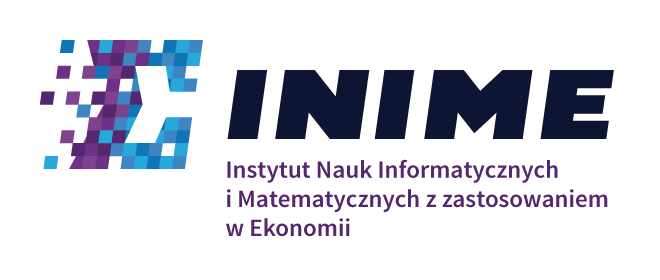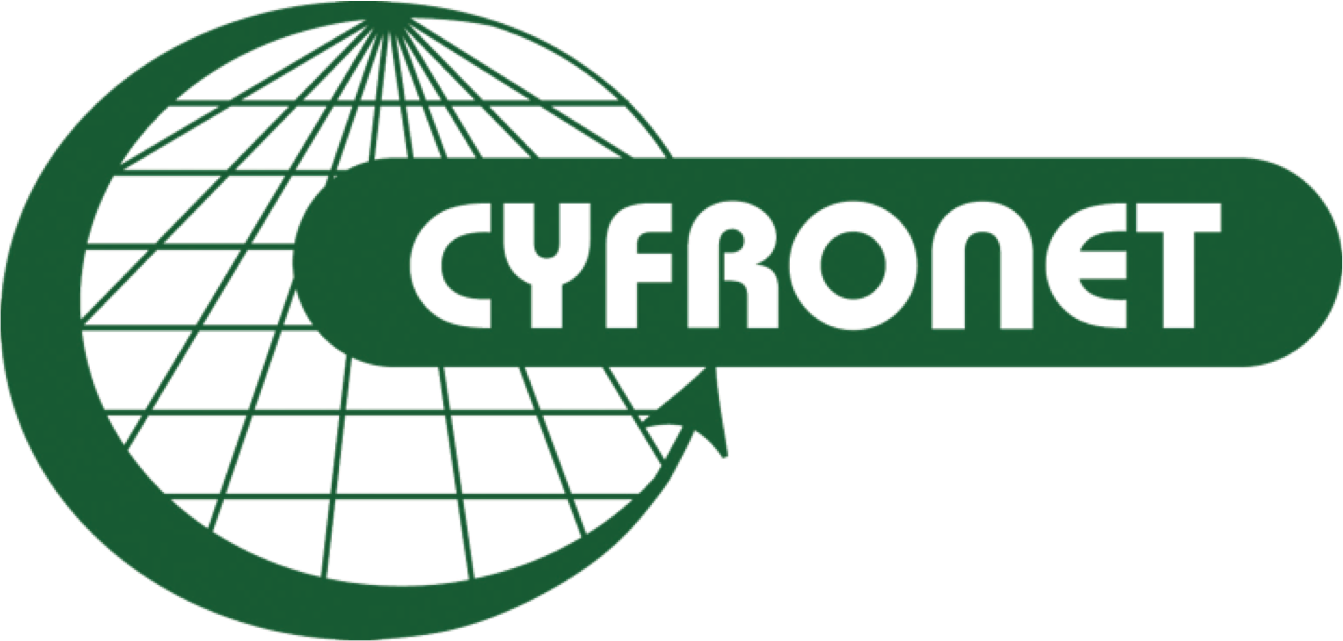Politechnika Krakowska
March 12-13, 2016
9:00 - 17:00
Instructors: Piotr Banaszkiewicz, Krzysiek Mędrela, Klemens Noga, Bartosz Sękiewicz
Helpers: Bartosz Pluciński
Informacje ogólne
Znajomość podstaw programowania staje się przydatną umiejętnością w praktycznie każdej dziedzinie. Warsztaty Software Carpentry pomagają stawiać pierwsze kroki w nauce programowania - automatyzowania zadań. Pozwalają uzytkownikom komputerów rozwijać ich umiejętności programistyczne, dzięki którym są oni bardziej produktywni w swojej codziennej pracy. W czasie dwudniowych warsztatów uczestnicy zachęcani są, by pracować razem i stosować umiejętności zdobyte podczas szkolenia do rozwiązywania własnych problemów. Warsztaty Software Carpentry odbywają się na całym świecie od ponad 5 lat i cieszą się ogromną popularnością.
Warsztaty będą prowadzone w języku polskim. Jednakże wszystkie materiały Software Carpentry są w języku angielskim.
Po więcej informacji o tym czego i jak uczymy zajrzyj do naszej pracy "Best Practices for Scientific Computing".
Dla kogo: Warsztaty są skierowane dla osób używających na co dzień komputerów, chcących nauczyć się bardziej efektywnego ich używania. Warsztaty Software Carpentry nastawione są na ćwiczenia praktyczne, podczas których uczestnicy uczą się jak pracować z linią komend (środowisko Unix), kontrolą wersji (Git i GitHub) oraz poznają podstawy dobrych praktyk programistycznych i analizy danych z użyciem języka R. Wcześniejsza znajomość narzędzi używanych w trakcie szkolenia nie jest wymagana.
Gdzie: Politechnika Krakowska, Instytut Fizyki, Kraków, ul. Podchorążych 1, sala 101. Sprawdź dojazd za pomocą OpenStreetMap, Google Maps lub jakdojade.pl. Najbliższy przystanek komunkiacji zbiorowej to "Uniwersytet Pedagogiczny".
Wymagania: Uczestnicy proszeni są o przyniesienie na warsztaty własnych laptopów. Konieczne będzie skonfigurowanie ich przed warsztatami, zgodnie z podanymi poniżej instrukcjami. Na warsztatach każdy jest zobowiązany przestrzegać Code of Conduct od Software Carpentry. W skrócie: prosimy odnosić się do siebie kulturalnie, uprzejmie i z szacunkiem.
Kontakt: Wszelkie pytania prosimy kierować na klemens.noga@cyfronet.pl.
Rejestracja
Koszt warsztatów to 30 PLN, które zostaną przeznaczone na poczęstunek dla uczestników. Jeżeli chcecie wziąć udział w warsztatach prosimy o wypełnienie ankiety rejestracyjnej.
Plan warsztatów
Ankiety
Prosimy o wypełnienie poniższych ankiet przed oraz po warsztatach:
Ankieta wstępna, do wypełnienia przed warsztatem
Ankieta ewaluacyjna warsztatów
Dzień 1 (sobota)
| 09:00 | Powitanie. Pomoc przy konfiguracji laptopów. |
| 09:30 | Praca z linią komend. |
| 11:00 | Przerwa. |
| 11:15 | Praca z linią komend – ciąg dalszy. |
| 12:30 | Przerwa na obiad. |
| 13:45 | Programowanie z użyciem R. |
| 14:30 | Przerwa. |
| 14:45 | Programowanie z użyciem R – ciąg dalszy. |
| 15:45 | Przerwa. |
| 16:00 | Programowanie z użyciem R – ciąg dalszy. |
| 16:45 | Podsumowanie dnia i zakończenie. |
Dzień 2 (niedziela)
| 09:00 | Powitanie. |
| 09:10 | Kontrola wersji z użyciem Git. |
| 11:00 | Przerwa. |
| 11:15 | Kontrola wersji z użyciem Git – ciąg dalszy. |
| 12:30 | Przerwa na obiad. |
| 14:00 | Kontrola wersji z użyciem Git – ciąg dalszy. |
| 14:45 | Przerwa. |
| 15:00 | Kontrola wersji z użyciem Git – ciąg dalszy. |
| 14:45 | Przerwa. |
| 16:00 | Kontrola wersji z użyciem Git – ciąg dalszy. |
| 16:45 | Podsumowanie dnia i zakończenie warsztatów. |
Etherpad: http://pad.software-carpentry.org/2016-03-12-Krakow.
W trakcie warsztatów będziemy używać tego Etherpada do pisania notatek, komunikacji oraz współdzielenia odnośników czy fragmentów kodu.
Syllabus
The Unix Shell
- Files and directories
- History and tab completion
- Pipes and redirection
- Looping over files
- Creating and running shell scripts
- Finding things
- Lesson materials
- Reference...
Programming in R
- Working with vectors and data frames
- Reading and plotting data
- Creating and using functions
- Loops and conditionals
- Using R from the command line
- Lesson materials
- Additional lessons
- Reference...
Version Control with Git
- Creating a repository
- Recording changes to files:
add,commit, ... - Viewing changes:
status,diff, ... - Ignoring files
- Working on the web:
clone,pull,push, ... - Resolving conflicts
- Open licenses
- Where to host work, and why
- Lesson materials
- Reference...
Setup
To participate in a Software Carpentry workshop, you will need access to the software described below. In addition, you will need an up-to-date web browser.
We maintain a list of common issues that occur during installation as a reference for instructors that may be useful on the Configuration Problems and Solutions wiki page.
The Bash Shell
Bash is a commonly-used shell that gives you the power to do simple tasks more quickly.
Windows
- Download the Git for Windows installer.
- Run the installer and follow the steps bellow:
- Click on "Next".
- Click on "Next".
- Click on "Next".
- Click on "Next".
- Click on "Next".
- Select "Use Git from the Windows Command Prompt" and click on "Next". If you forgot to do this programs that you need for the workshop will not work properly. If this happens rerun the installer and select the appropriate option.
- Click on "Next". Keep "Checkout Windows-style, commit Unix-style line endings" selected.
- Select "Use Windows' default console window" and click on "Next".
- Click on "Next".
- Click on "Finish".
This will provide you with both Git and Bash in the Git Bash program.
Mac OS X
The default shell in all versions of Mac OS X is Bash, so no
need to install anything. You access Bash from the Terminal
(found in
/Applications/Utilities). You may want to keep
Terminal in your dock for this workshop.
Linux
The default shell is usually Bash, but if your
machine is set up differently you can run it by opening a
terminal and typing bash. There is no need to
install anything.
Git
Git is a version control system that lets you track who made changes to what when and has options for easily updating a shared or public version of your code on github.com. You will need a supported web browser (current versions of Chrome, Firefox or Safari, or Internet Explorer version 9 or above).
Windows
Git should be installed on your computer as part of your Bash install (described above).
Mac OS X
For OS X 10.9 and higher, install Git for Mac
by downloading and running the most recent "mavericks" installer from
this list.
After installing Git, there will not be anything in your /Applications folder,
as Git is a command line program.
For older versions of OS X (10.5-10.8) use the
most recent available installer labelled "snow-leopard"
available here.
Linux
If Git is not already available on your machine you can try to
install it via your distro's package manager. For Debian/Ubuntu run
sudo apt-get install git and for Fedora run
sudo yum install git.
Text Editor
When you're writing code, it's nice to have a text editor that is
optimized for writing code, with features like automatic
color-coding of key words. The default text editor on Mac OS X and
Linux is usually set to Vim, which is not famous for being
intuitive. if you accidentally find yourself stuck in it, try
typing the escape key, followed by :q! (colon, lower-case 'q',
exclamation mark), then hitting Return to return to the shell.
Windows
nano is a basic editor and the default that instructors use in the workshop. To install it, download the Software Carpentry Windows installer and double click on the file to run it. This installer requires an active internet connection.
Others editors that you can use are Notepad++ or Sublime Text. Be aware that you must add its installation directory to your system path. Please ask your instructor to help you do this.
Mac OS X
nano is a basic editor and the default that instructors use in the workshop. It should be pre-installed.
Others editors that you can use are Text Wrangler or Sublime Text.
Linux
nano is a basic editor and the default that instructors use in the workshop. It should be pre-installed.
Others editors that you can use are Gedit, Kate or Sublime Text.
R
R is a programming language that is especially powerful for data exploration, visualization, and statistical analysis. To interact with R, we use RStudio. For more detailed instruction visit eRka instalation and configuration guide.
Windows
Install R by downloading and running this .exe file from CRAN. Also, please install the RStudio IDE.
Mac OS X
Install R by downloading and running this .pkg file from CRAN. Also, please install the RStudio IDE.
Linux
You can download the binary files for your distribution
from CRAN. Or
you can use your package manager (e.g. for Debian/Ubuntu
run sudo apt-get install r-base and for Fedora run
sudo yum install R). Also, please install the
RStudio IDE.



